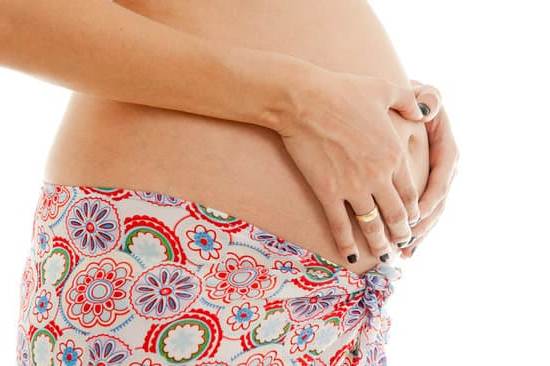Gastric sleeve surgery, also known as sleeve gastrectomy, is a weight loss procedure that involves the removal of a portion of the stomach to create a smaller, sleeve-shaped stomach. Proper nutrition during pregnancy is crucial for the health of both the mother and baby. For women who have undergone gastric sleeve surgery and are pregnant, ensuring adequate nutrition becomes even more essential.
This article will explore the impact of gastric sleeve surgery on pregnancy nutrition, key nutrients for a healthy pregnancy, recommended diets for pregnant women with gastric sleeve, meal planning and portion control strategies, potential risks and complications, and the benefits of consulting with a nutritionist or dietitian. It aims to provide valuable information and support for pregnant women who have had gastric sleeve surgery.
Gastric sleeve surgery can have significant effects on the body’s ability to absorb nutrients, which presents specific nutritional challenges for pregnant women who have undergone this procedure. The combination of necessary nutrients for a healthy pregnancy, coupled with the altered digestive system post-surgery, requires careful consideration and planning to ensure optimal health for both mother and baby.
In addition to understanding how gastric sleeve surgery impacts nutrition during pregnancy, it is essential to recognize the specific nutrients that are vital for expecting mothers. These nutrients play a crucial role in supporting the growth and development of the baby while also maintaining the overall health and well-being of the mother. In light of these considerations, it becomes evident that navigating proper nutrition during pregnancy after having gastric sleeve surgery requires expert guidance and tailored dietary plans.
Gastric Sleeve Surgery and Its Impact on Nutrition
Gastric sleeve surgery, also known as sleeve gastrectomy, is a surgical weight-loss procedure that involves reducing the size of the stomach to limit food intake. This surgery is effective for many individuals struggling with obesity, helping them to achieve significant weight loss and improve overall health. However, it’s important to understand the impact of gastric sleeve surgery on nutrition, especially for women who may become pregnant after undergoing this procedure.
After undergoing gastric sleeve surgery, the body’s ability to absorb nutrients is altered due to the reduction in stomach size. This can lead to specific nutritional challenges, particularly during pregnancy when a woman’s body requires increased levels of essential nutrients to support fetal growth and development. Proper nutrition during pregnancy is crucial for both the mother’s health and the baby’s wellbeing.
Pregnant women who have had gastric sleeve surgery need to pay close attention to their nutrient intake to ensure they are meeting their body’s needs as well as those of their growing baby. Specific dietary guidelines and meal planning strategies can help these women navigate the challenges associated with reduced stomach capacity while still obtaining essential nutrients. Seeking guidance from a nutritionist or dietitian can be beneficial in developing personalized nutrition plans tailored to individual needs and circumstances.
| Gastric Sleeve Surgery | Pregnancy Nutrition |
|---|---|
| Affects body’s ability to absorb nutrients | Proper nutrition crucial for mother & baby |
| Specific nutritional challenges post-surgery | Dietary guidelines for adequate nutrient intake |
| Tips for ensuring nutrient consumption | Importance of seeking professional guidance |
Key Nutrients for Pregnancy
During pregnancy, it is crucial for women to focus on consuming key nutrients that are essential for the health of both the mother and the baby. This becomes even more important for women who have undergone gastric sleeve surgery, as their body’s ability to absorb nutrients may be impaired. Below are some key nutrients that are vital during pregnancy:
1. Folic Acid: Folic acid is important for preventing birth defects in the baby’s brain and spine. It can be found in leafy green vegetables, citrus fruits, beans, and fortified grains.
2. Iron: Iron is necessary for the production of hemoglobin, which carries oxygen in the blood. Pregnant women need more iron to support the increased blood volume during pregnancy. Good sources of iron include lean meat, poultry, fish, dried beans and peas.
3. Calcium: Calcium is essential for the development of strong bones and teeth in the baby. It is also important for the mother’s bone health. Dairy products such as milk, cheese, and yogurt are good sources of calcium.
4. Protein: Protein is crucial for the growth of fetal tissue, including the brain. Lean meat, poultry, fish, eggs, beans and nuts are excellent sources of protein.
5. Omega-3 Fatty Acids: Omega-3 fatty acids are important for brain development in the baby. Sources include fatty fish like salmon and trout, as well as flaxseeds and walnuts.
For women who have had gastric sleeve surgery and are pregnant or planning to become pregnant, it is important to consult with a nutritionist or dietitian to develop a personalized nutrition plan that takes into account their specific needs and challenges related to nutrient absorption. Additionally, portion control should be emphasized to ensure that they are getting enough nutrients without overloading their smaller stomach capacity due to the surgery.
Recommended Diet for Pregnant Women With Gastric Sleeve
Pregnancy is a time when proper nutrition is crucial for both the mother and the baby. However, women who have undergone gastric sleeve surgery may face specific challenges when it comes to maintaining adequate nutrition during pregnancy. The surgery, which reduces the size of the stomach, can impact the body’s ability to absorb essential nutrients, making it important for women who have had gastric sleeve surgery to be particularly mindful of their diet during pregnancy.
Nutritional Guidelines for Pregnant Women With Gastric Sleeve
For pregnant women who have undergone gastric sleeve surgery, it is essential to follow specific dietary guidelines to ensure that they are receiving adequate nutrition for a healthy pregnancy. This may include focusing on nutrient-dense foods such as lean protein, fruits, vegetables, and whole grains. In addition, incorporating supplements such as prenatal vitamins as recommended by a healthcare provider can help fill any nutritional gaps.
Tips for Ensuring Adequate Nutrition During Pregnancy
In addition to following a well-balanced diet, pregnant women with a history of gastric sleeve surgery should pay attention to their eating habits. This may involve consuming smaller, more frequent meals throughout the day to ensure proper nutrient intake without causing discomfort or digestive issues. It’s also important to stay hydrated and avoid empty calories from sugary or processed foods.
Importance of Regular Monitoring and Follow-Up Care
Pregnant women who have had gastric sleeve surgery should receive regular monitoring and follow-up care from their healthcare providers. This includes scheduled visits with a nutritionist or dietitian to assess their dietary intake and make any necessary adjustments. With proper guidance and support, women can navigate the unique nutritional needs of pregnancy after gastric sleeve surgery while ensuring both their own health and that of their baby.
Meal Planning and Portion Control
Women who have undergone gastric sleeve surgery and are considering or are already pregnant may face unique challenges when it comes to maintaining proper nutrition. Gastric sleeve surgery, also known as sleeve gastrectomy, reduces the size of the stomach and can impact the body’s ability to absorb nutrients effectively.
This surgical procedure restricts the amount of food that can be consumed, making it essential for pregnant women who have had a gastric sleeve to pay special attention to their diet.
One of the key nutrients for pregnancy is folic acid, which is important for preventing birth defects in the baby’s brain and spine. However, women who have had gastric sleeve surgery may have difficulty absorbing this nutrient, so it is crucial to work closely with a healthcare provider to ensure adequate intake. Additionally, protein is vital for fetal growth and development, but individuals who have undergone gastric sleeve surgery may need to adjust their protein intake further during pregnancy.
Meal planning plays a significant role in ensuring that pregnant women with a history of gastric sleeve surgery receive essential nutrients. By incorporating nutrient-dense foods into meals and snacks, expectant mothers can optimize their nutrition without overeating. Portion control is also crucial for women who have had gastric sleeve surgery, as consuming excessive amounts of food can lead to discomfort or complications. Careful consideration of portion sizes and meal frequency can help manage nutrition effectively throughout pregnancy.
| Nutrient | Importance |
|---|---|
| Folic Acid | Prevents birth defects in baby’s brain and spine |
| Protein | Vital for fetal growth and development |
Potential Risks and Complications
Pregnancy after gastric sleeve surgery can pose some unique challenges when it comes to nutrition and overall health. Due to the body’s reduced capacity for food intake and potential nutrient malabsorption, it is crucial for women who have undergone gastric sleeve surgery to be aware of the potential risks and complications during pregnancy.
1. Nutrient Deficiencies: Women who have had gastric sleeve surgery are at a higher risk of developing nutrient deficiencies, including vitamin D, vitamin B12, iron, and calcium. These deficiencies can not only affect the mother’s health but also impact fetal development, potentially leading to birth defects or other complications.
2. Gestational Diabetes: Pregnant women with a history of gastric sleeve surgery may be at an increased risk for developing gestational diabetes. This condition can have serious implications for both the mother and the baby if not properly managed through diet and medical care.
3. Inadequate Weight Gain: Due to the restricted stomach size after gastric sleeve surgery, some women may struggle to gain enough weight during pregnancy. Inadequate weight gain can lead to preterm birth or low birth weight in babies, increasing the risk of health problems after birth.
It is essential for pregnant women who have undergone gastric sleeve surgery to work closely with their healthcare providers to monitor their nutritional status and address any potential risks or complications. Regular check-ups, blood tests, and adherence to a specialized diet plan can help mitigate these risks and promote a healthy pregnancy for both the mother and baby.
Consultation With a Nutritionist or Dietitian
After undergoing gastric sleeve surgery, women who are pregnant or planning to become pregnant may face unique challenges when it comes to proper nutrition. This is where the expertise of a nutritionist or dietitian can be invaluable. These healthcare professionals specialize in creating personalized nutrition plans and providing guidance for individuals with specific dietary needs, including those who have had bariatric surgery such as gastric sleeve.
Benefits of Seeking Professional Guidance
Consulting with a nutritionist or dietitian during pregnancy offers numerous benefits for women who have undergone gastric sleeve surgery. These professionals can assess the individual’s nutritional needs, taking into account the impact of the surgery on nutrient absorption. They can provide tailored advice on meeting these needs through dietary choices and, if necessary, supplementation. Additionally, they can offer support and strategies for managing potential challenges that may arise due to the surgical alterations in the digestive system.
Importance of Personalized Nutrition Plans
Pregnancy nutrition is not “one-size-fits-all”, and this is especially true for women who have had gastric sleeve surgery. A nutritionist or dietitian can create a personalized plan that considers the specific nutritional requirements for both the mother and baby during pregnancy. This may involve adjusting macronutrient levels, ensuring adequate intake of key nutrients such as protein, folate, iron, calcium, and B vitamins, and addressing any digestive issues that may impact food tolerance.
Seeking Support for Maintaining a Healthy Pregnancy Diet
In summary, achieving optimal nutrition during pregnancy after gastric sleeve surgery requires careful attention to dietary choices and nutrient intake. Consulting with a qualified nutritionist or dietitian can help ensure that pregnant women receive appropriate support and guidance in navigating their unique nutritional needs. As such, seeking professional assistance should be strongly encouraged as part of the comprehensive care plan for women who have undergone gastric sleeve surgery and are expecting a child.
Conclusion
In conclusion, it is apparent that proper nutrition is essential for pregnant women who have undergone gastric sleeve surgery. The surgery itself can present challenges for absorbing necessary nutrients, and when combined with the increased nutritional needs of pregnancy, it becomes even more crucial to pay close attention to dietary choices.
Key nutrients such as folic acid, iron, calcium, and protein play a vital role in the health and development of both the mother and baby during pregnancy. Therefore, it is important for women who have had gastric sleeve surgery to work closely with healthcare professionals to ensure they are meeting their nutritional requirements.
Following a recommended diet and practicing portion control are vital components for maintaining adequate nutrition during pregnancy after gastric sleeve surgery. Meal planning should be centered around nutrient-dense foods that provide the essential vitamins and minerals needed for a healthy pregnancy.
It is also crucial to be mindful of portion sizes to prevent overeating or under-consuming important nutrients. Additionally, regular monitoring and personalized nutrition plans are necessary for managing the potential risks and complications associated with both the surgical procedure and pregnancy.
Frequently Asked Questions
What Can I Eat After Gastric Sleeve While Pregnant?
After having gastric sleeve surgery, it’s important to follow a specific dietary plan, and this becomes even more crucial during pregnancy. A pregnant woman who has had a gastric sleeve procedure should focus on consuming nutrient-dense foods that are rich in essential vitamins and minerals.
Foods such as lean proteins, fruits, vegetables, and whole grains can provide the necessary nutrients for both the mother and the developing baby.
Can You Have a Healthy Pregnancy After Gastric Sleeve?
Yes, it is absolutely possible to have a healthy pregnancy after undergoing gastric sleeve surgery. However, it requires close monitoring by healthcare professionals to ensure that both the mother and the baby are receiving adequate nutrition. Following a strict dietary plan along with proper supplementation can help support a healthy pregnancy post-gastric sleeve.
Which Nutritional Deficiency Is the Most Common Problem Related to Pregnancy Following Bariatric Surgery?
Iron deficiency is one of the most common nutritional problems associated with pregnancy following bariatric surgery, regardless of which type of procedure was performed. This deficiency can lead to anemia, which can negatively impact both the mother’s health and the development of the fetus.
Close monitoring and appropriate supplementation are essential in preventing and managing iron deficiency during pregnancy after bariatric surgery.

Welcome to my fertility blog. This is a space where I will be sharing my experiences as I navigate through the world of fertility treatments, as well as provide information and resources about fertility and pregnancy.





